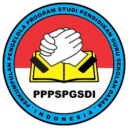Kemampuan Early Childhood Mathematics Anak untuk Mempelajari Matematika di Tingkat Selanjutnya
DOI:
https://doi.org/10.35568/naturalistic.v7i2.3090Keywords:
Early childhood mathematics, Perkembangan anak, Anak Usia DiniAbstract
This study aims to determine the skills that children should possess during early childhood and to interpret the problems that are obstacles, as well as efforts that can be taken as solutions. The method used in this research is a literature study. The survey conducted showed that children's classification and resultative counting skills are still relatively low. The results of the study found that children's skills in early childhood mathematics can predict how successful they will be in their mathematics learning achievement and in developing other skills. There are 4 skills that need to be developed, which is concept of comparison, classification, resultative counting dan general understanding of number. Teachers are expected to be able to prepare high-quality lesson plans to help develop children's abilities and can act as facilitators in learning for children.
Keywords: Early childhood; Mathematics; Numerical; Skills
Abstrak
Penelitian ini bertujuan untuk mengetahui kemampuan apa saja yang harus dimiliki anak pada masa early childhood dan menginterpretasi apa saja masalah yang menjadi hambatan, serta usaha yang dapat diambil sebagai solusinya. Metode yang digunakan dalam penelitian ini adalah studi literatur. Survei yang dilakukan, menunjukkan bahwa kemampuan classification dan resultative counting anak masih tergolong rendah. Hasil dari penelitian ditemukan bahwa kemampuan anak dalam early childhood mathematics dapat memprediksi bagaimana anak tersebut dapat sukses dalam pencapaian pembelajaran matematika dan juga dalam mengembangkan kemampuan lainnya. Terdapat 4 kemampuan yang perlu dikembangkan, yaitu concept of comparison, classification, resultative counting dan general understanding of number. Guru diharapkan dapat mempersiapkan rencana pembelajaran yang berkualitas tinggi untuk membantu mengembangkan kemampuan anak dan dapat berperan sebagai fasilitator di dalam pembelajaran bagi anak.
Downloads
References
Informal Mathematics in Early Childhood Education. Early Child Development and Care. https://doi.org/10.1080/03004430.2018.1555823
Astari, T., & Chozin, N. (2019). Meningkatkan Kemampuan Klasifikasi Matematika Melalui Media Saku Pintar Anak Usia 4-5 Tahun. SEMNASFIP. https://jurnal.umj.ac.id/index.php/SEMNASFIP/article/view/5104
Aunio, P., & Niemivirta, M. (2010). Predicting Children's Mathematical Performance in Grade One by Early Numeracy. Learning and individual differences, 20(5), 427-435. https://doi.org/10.1016/j.lindif.2010.06.003
Aunio, P., & Räsänen, P. (2016). Core Numerical Skills for Learning Mathematics in Children Aged Five to Eight Years–A Working Model for Educators. European Early Childhood Education Research Journal, 24(5), 684-704. https://doi.org/10.1080/1350293X.2014.996424
Barnes, M. A., & Raghubar, K. P. (2014). Mathematics Development and Difficulties: The Role of Visual–Spatial Perception and Other Cognitive Skills. Pediatric Blood & Cancer, 61(10), 1729-1733. https://doi.org/10.1002/pbc.24909
Björklund, C., van den Heuvel-Panhuizen, M., & Kullberg, A. (2020). Research On Early Childhood Mathematics Teaching and Learning. ZDM, 52(4), 607-619. https://doi.org/10.1007/s11858-020-01177-3
Cerezci, B. (2020). Measuring The Quality of Early Mathematics Instruction: A Review of Six Measures. Early Childhood Education Journal, 48(4), 507-520. https://doi.org/10.1007/s10643-019-01013-8
Classifying and Sorting as a Foundation for Mathematical Thinking. (2016) Justifying Play-Based Learning. (n.d.). Diakses 4 Januari, 2023, dari https://justifyingplaybased.weebly.com/classifying--sorting.html
Clements, D. H., & Sarama, J. (2011). Early Childhood Mathematics Intervention. Science, 333(6045), 968-970. https://doi.org/10.1126/science.1204537
Clements, D. H., & Sarama, J. (2016). Math, Science, and Technology in The Early Grades. The Future of Children, 75-94. https://www.jstor.org/stable/43940582
Cohrssen, C., & Tayler, C. (2016). Early Childhood Mathematics: A Pilot Study in Preservice Teacher Education. Journal of Early Childhood Teacher Education, 37(1), 25-40. https://doi.org/10.1080/10901027.2015.1131208
Hachey, A. C. (2013). The Early Childhood Mathematics Education Revolution. Early Education & Development, 24(4), 419-430. https://doi.org/10.1080/10409289.2012.756223
Hachey, A. C. (2013). Early Childhood Mathematics Education: The Critical Issue Is Change. Early Education & Development, 24(4), 443-445. https://doi.org/10.1080/10409289.2013.777286
Hallberg, L. R. M. (2010). Some Thoughts About the Literature Review in Grounded Theory Studies. International Journal of Qualitative Studies on Health and Well-being, 5(3). https://doi.org/10.3402%2Fqhw.v5i3.5387
Hidayati, K. (2012). Pembelajaran Matematika Usia SD/MI Menurut Teori Belajar Piaget. Cendekia: Jurnal Kependidikan dan Kemasyarakatan, 10(2), 291-308. http://dx.doi.org/10.21154/cendekia.v10i2.417
Hinton, V. M., Flores, M. M., Schweck, K., & Burton, M. E. (2016). The Effects of a Supplemental Explicit Counting Intervention for Preschool Children. Preventing School Failure: Alternative Education for Children and Youth, 60(3), 183-193. https://doi.org/10.1080/1045988X.2015.1065400
Hinton, V., Stroizer, S., & Flores, M. (2015). A Case Study in Using Explicit Instruction to Teach Young Children Counting Skills. Investigations in Mathematics Learning, 8(2), 37-54. https://doi.org/10.1080/24727466.2015.11790350
Hoover, M., Mosvold, R., Ball, D. L., & Lai, Y. (2016). Making Progress on Mathematical Knowledge for Teaching. The Mathematics Enthusiast, 13(1), 3-34. https://doi.org/10.54870/1551-3440.1363
Hornburg, C. B., Schmitt, S. A., & Purpura, D. J. (2018). Relations Between Preschoolers’ Mathematical Language Understanding and Specific Numeracy Skills. Journal of Experimental Child Psychology, 176, 84-100. https://doi.org/10.1016/j.jecp.2018.07.005
Jones, J. P., & Tiller, M. (2017). Using Concrete Manipulatives in Mathematical Instruction. Dimensions of Early Childhood, 45(1), 18-23. https://eric.ed.gov/?id=EJ1150546
Kolkman, M. E., Kroesbergen, E. H., & Leseman, P. P. (2013). Early Numerical Development and The Role of Non-Symbolic and Symbolic Skills. Learning and instruction, 25, 95-103. https://doi.org/10.1016/j.learninstruc.2012.12.001
Linder, S. M., Powers-Costello, B., & Stegelin, D. A. (2011). Mathematics In Early Childhood: Research-Based Rationale and Practical Strategies. Early Childhood Education Journal, 39(1), 29-37. https://doi.org/10.1007/s10643-010-0437-6
Lundqvist, J., Franzén, K., & Munter, A. C. (2022). Early Childhood Mathematics: A Case Study. Early Years, 1-15. https://doi.org/10.1080/09575146.2021.2014404
Merkley, R., & Ansari, D. (2016). Why Numerical Symbols Count in The Development of Mathematical Skills: Evidence from Brain and Behavior. Current Opinion in Behavioral Sciences, 10, 14-20. https://doi.org/10.1016/j.cobeha.2016.04.006
Downloads
Published
How to Cite
Issue
Section
License
Copyright (c) 2023 Naturalistic: Jurnal Kajian dan Penelitian Pendidikan dan Pembelajaran

This work is licensed under a Creative Commons Attribution-NonCommercial-NoDerivatives 4.0 International License.
Copyright of Journal Naturalistic : Jurnal Kajian Penelitian Pendidikan dan Pembelajaran (e-ISSN:2548-8589, p-ISSN:2528-2921).
Open Access Policy
This journal provides immediate open access to its content on the principle that making research freely available to the public supports a greater global exchange of knowledge.
This journal is open access journal which means that all content is freely available without charge to users or / institution. Users are allowed to read, download, copy, distribute, print, search, or link to full text articles in this journal without asking prior permission from the publisher or author. This is in accordance with Budapest Open Access Initiative.






